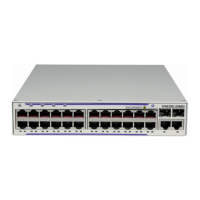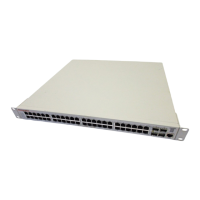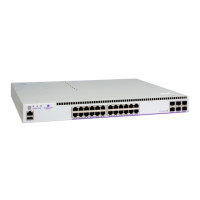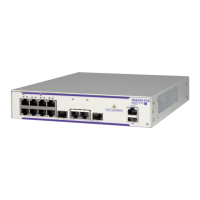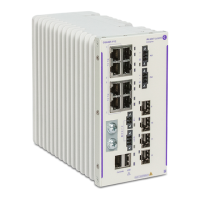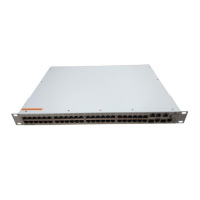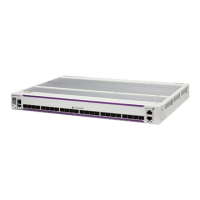Distributed Spanning Tree Commands
OmniSwitch 6250 CLI Reference Guide November 2009 page 16-105
bridge cist slot/port restricted-tcn
Configures the restricted TCN status for a port or an aggregate of ports for the flat mode Common and
Internal Spanning Tree (CIST). When this parameter is enabled, the port will not propagate topology
changes and notifications to/from other ports.
bridge cist {slot/port | logical_port} restricted-tcn {on | off | enable | disable}
Syntax Definitions
slot/port Enter the slot number for the module and the physical port number on
that module (e.g., 3/1 specifies port 1 on slot 3).
logical_port Link aggregate ID number (0–31).
on Turns on (enables) the restricted TCN status for the specified
port-CIST instance.
off Turns off (disables) the restricted TCN status for the specified
port-CIST instance.
enable Enables the restricted TCN status for the specified port-CIST instance.
disable Disables the restricted TCN status for the specified port-CIST instance.
Defaults
By default, the restricted TCN status for the port is disabled.
Platforms Supported
OmniSwitch 6250
Usage Guidelines
• Enabling the restricted TCN status is used by network administrators to prevent bridges external to the
core region of the network from causing unnecessary MAC address flushing in that region.
• Note that enabling the restricted TCN status for a port may impact Spanning Tree connectivity.
• This command is an explicit Spanning Tree command that only applies to the CIST instance regard-
less of which operating mode (flat or 1x1) is active on the switch.
• If the switch is running in the 1x1 mode when this command is used, the specified restricted TCN
status for the port is not active for the CIST instance until the switch is running in the flat Spanning
Tree mode.
• Note that when a configuration snapshot is taken of the switch, all Spanning Tree commands are saved
in their explicit format.
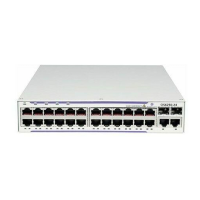
